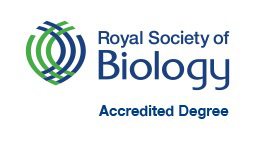Sport and Exercise Science Code C60F Attend an Open Day Attend an Open Day
Apply NowKey Facts
C60F-
UCAS Tariff
48
-
Course duration
4 years
Available for September start 2026
Further details on entry requirements
Apply NowThis course includes an integrated foundation year.
On the BSc Sport and Exercise Science degree you will benefit from the expertise of our sport and exercise scientists, who have worked with a number of organisations, teams, and individual sports people, ranging from recreational athletes to those who have achieved success at European or world championship level. Under their guidance, you will develop your own practical skills in our dedicated sport and exercise laboratories.
You will study the psychological, physiological and biomechanical foundations of sport and exercise, and develop an understanding of how these are important in optimising the training regime of sports competitors and exercise participants. You will develop a scientific understanding of how the human body moves, exercises and performs sport, and an appreciation of how sport and exercise science can improve human health and function, prevent disease or injury, or increase athletic performance.
Upon graduation, you will be well prepared to support athletes, promote physical activity and health, and deliver exercise programmes.
This course is accredited by the Royal Society of Biology and The British Association of Sport and Exercise Sciences (BASES), the professional body for sport and exercise sciences in the UK.
Course Overview
Modules September start - 2026
Please note: The modules listed below are those currently intended for delivery during the next academic year and may be subject to change. They are included here to give an indication of how the course is structured.
| Module Name | Module Code | Credit Value |
|---|---|---|
| Communication Skills | BR01520 | 20 |
| Molecules and Cells | BR01340 | 40 |
| Organisms and the Environment | BR01440 | 40 |
| Practical Skills for Biologists | BR01220 | 20 |
| Module Name | Module Code | Credit Value |
|---|---|---|
| Cell Biology * | BR17520 | 20 |
| Human Anatomy and Kinesiology | BR16420 | 20 |
| Human Physiological Systems | BR16320 | 20 |
| Psychology of physical activity and health. | BR16120 | 20 |
| Research designs to assess and monitor clients | BR16020 | 20 |
| Skills in Nutrition, and Science Communication | BR17420 | 20 |
| Module Name | Module Code | Credit Value |
|---|---|---|
| Applying evidence based interventions | BR21220 | 20 |
| Motor Learning and Performance | BR26420 | 20 |
| Physical Activity for Health | BR27020 | 20 |
| Research Methods * | BR27520 | 20 |
| Sport & Exercise Physiology | BR27420 | 20 |
| Sport and Exercise Nutrition | BR22520 | 20 |
| Module Name | Module Code | Credit Value |
|---|---|---|
| Consultancy work | BR37620 | 20 |
| Research Project * | BR36440 | 40 |
| Training and Performance Enhancement | BR34420 | 20 |
Options
| Module Name | Module Code | Credit Value |
|---|---|---|
| Applied Sports Nutrition | BR30920 | 20 |
| Injury and Rehabilitation | BR32020 | 20 |
| Technological advances in sport, exercise and health | BR37420 | 20 |
* Also available partially or entirely through the medium of Welsh
Careers
Teaching & Learning
Typical Entry Requirements
UCAS Tariff 48
A Levels Available to those who are studying for, or who have completed Level 3 qualifications (e.g. A-Levels or BTEC diploma) in subject areas other than biological science, and to mature-aged candidates who have the required GCSEs, experience and motivation.
GCSE requirements (minimum grade C/4):
(minimum grade C/4): English or Welsh, Mathematics and Science
BTEC National Diploma:
Available to those who are studying for, or who have completed the Extended Level 3 BTEC diploma in subject areas other than biological science, or who have taken a BTEC certificate or diploma in any subject, and to mature-aged candidates who have the required GCSE subjects, experience and motivation.
International Baccalaureate:
Available to those who are studying for, or who have completed an international baccalaureate in subject areas other than higher level biological science, and to mature-aged candidates who have the required GCSE subjects (or equivalent), experience and motivation.
European Baccalaureate:
Available to those who are studying for, or who have completed the European Baccalaureate in subject areas other than 4p biological science and to mature-aged candidates who have the required GCSE subjects (or equivalent), experience and motivation.
English Language Requirements See our Undergraduate English Language Requirements (https://www.aber.ac.uk/en/study-with-us/international/english-requirements/ug-english-requirements/) for this course. Pre-sessional English Programmes (https://www.aber.ac.uk/en/international-english/courses/te/) are also available for students who do not meet our English Language Requirements.
Other Requirements Our inclusive admissions policy values breadth as well as depth of study. Applicants are selected on their own individual merits and offers can vary. If you would like to check the eligibility of your qualifications before submitting an application, please contact the Undergraduate Admissions Office for advice and guidance.
Country Specific Entry Requirements:
International students whose qualification is not listed on this page, can check our Country Specific Entry Requirements for further information.
The University welcomes undergraduate applications from students studying the Access to Higher Education Diploma or T-level qualifications, provided that relevant subject content and learning outcomes are met. We are not able to accept Access to Higher Education Diplomas or T-levels as a general qualification for every undergraduate degree course.
Our inclusive admissions policy values breadth as well as depth of study. Applicants are selected on their own individual merits and offers can vary. If you would like to check the eligibility of your qualifications before submitting an application, please contact the Undergraduate Admissions Office for advice and guidance.

